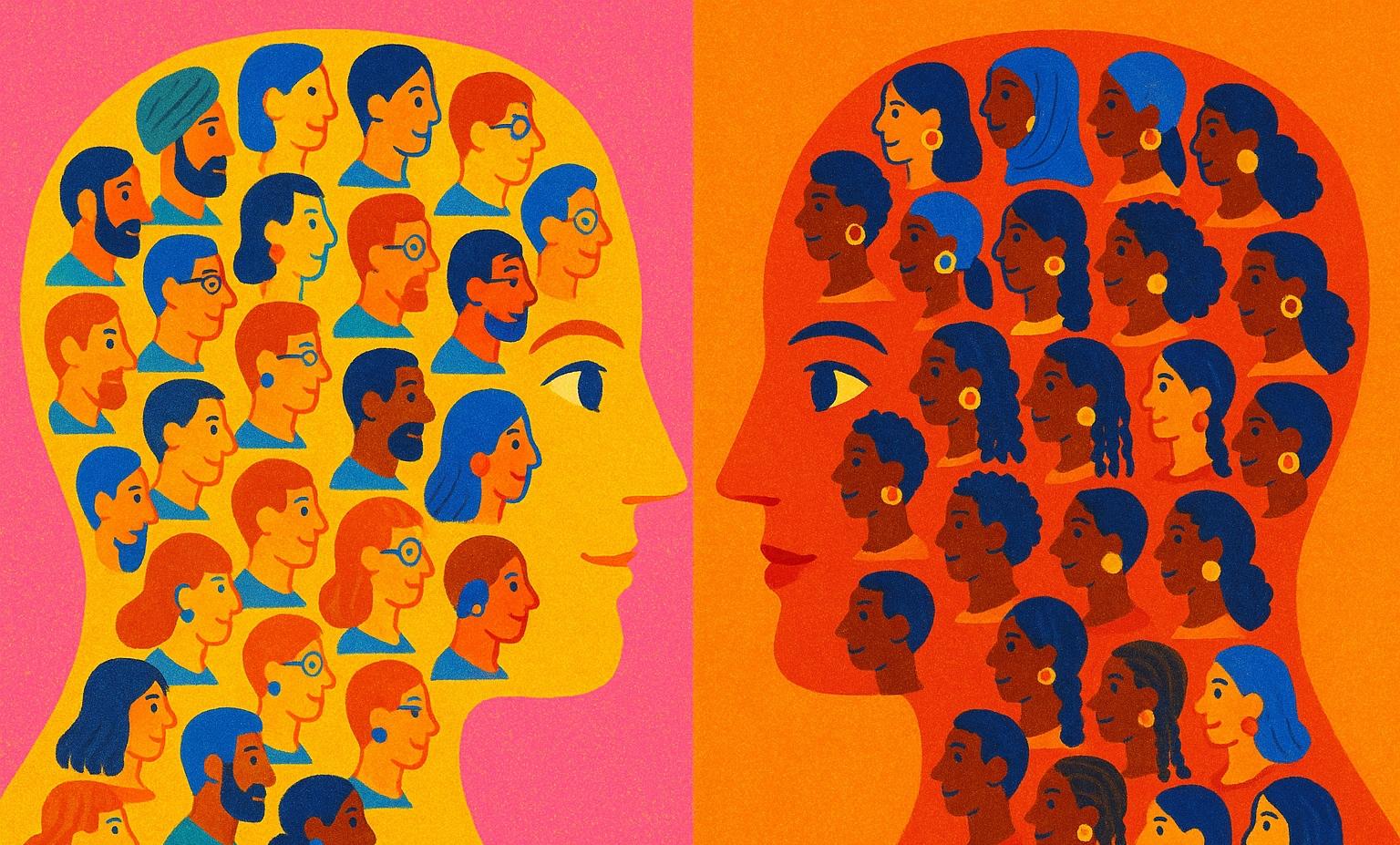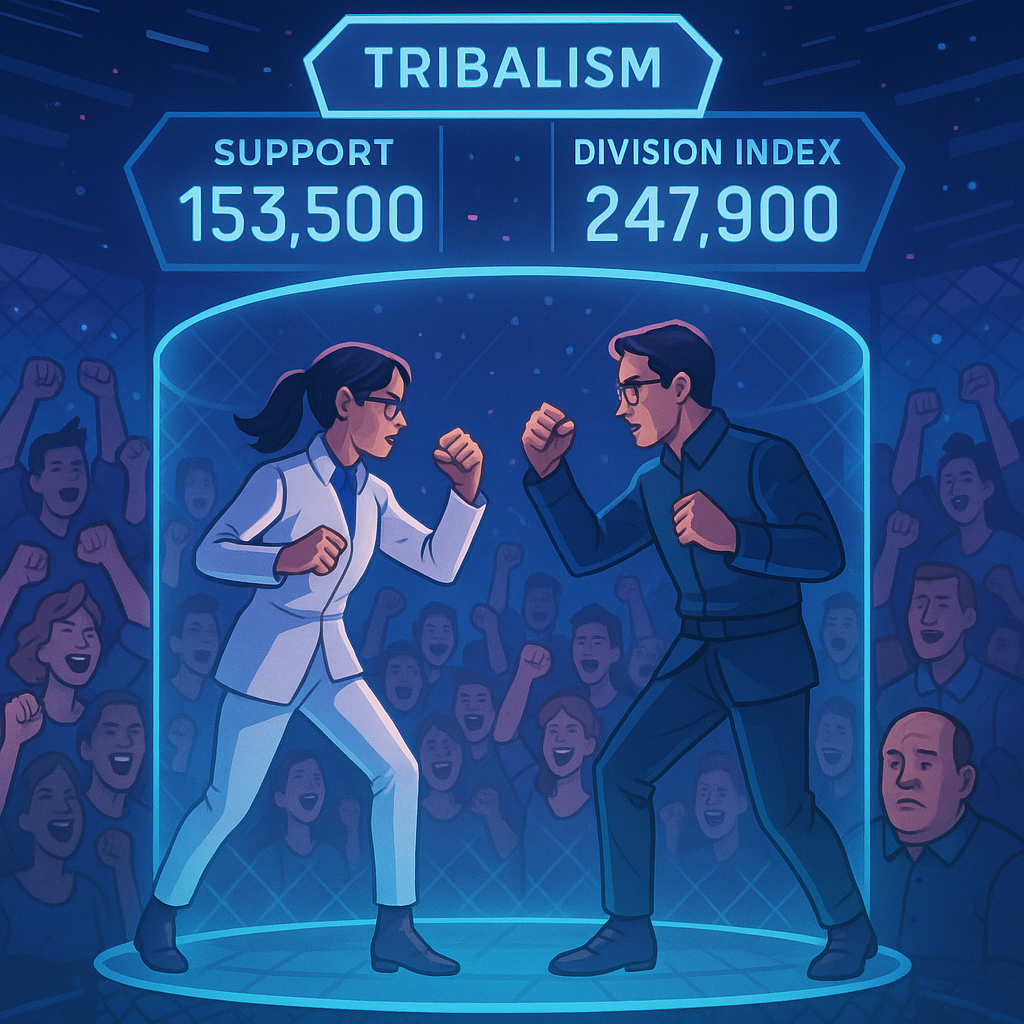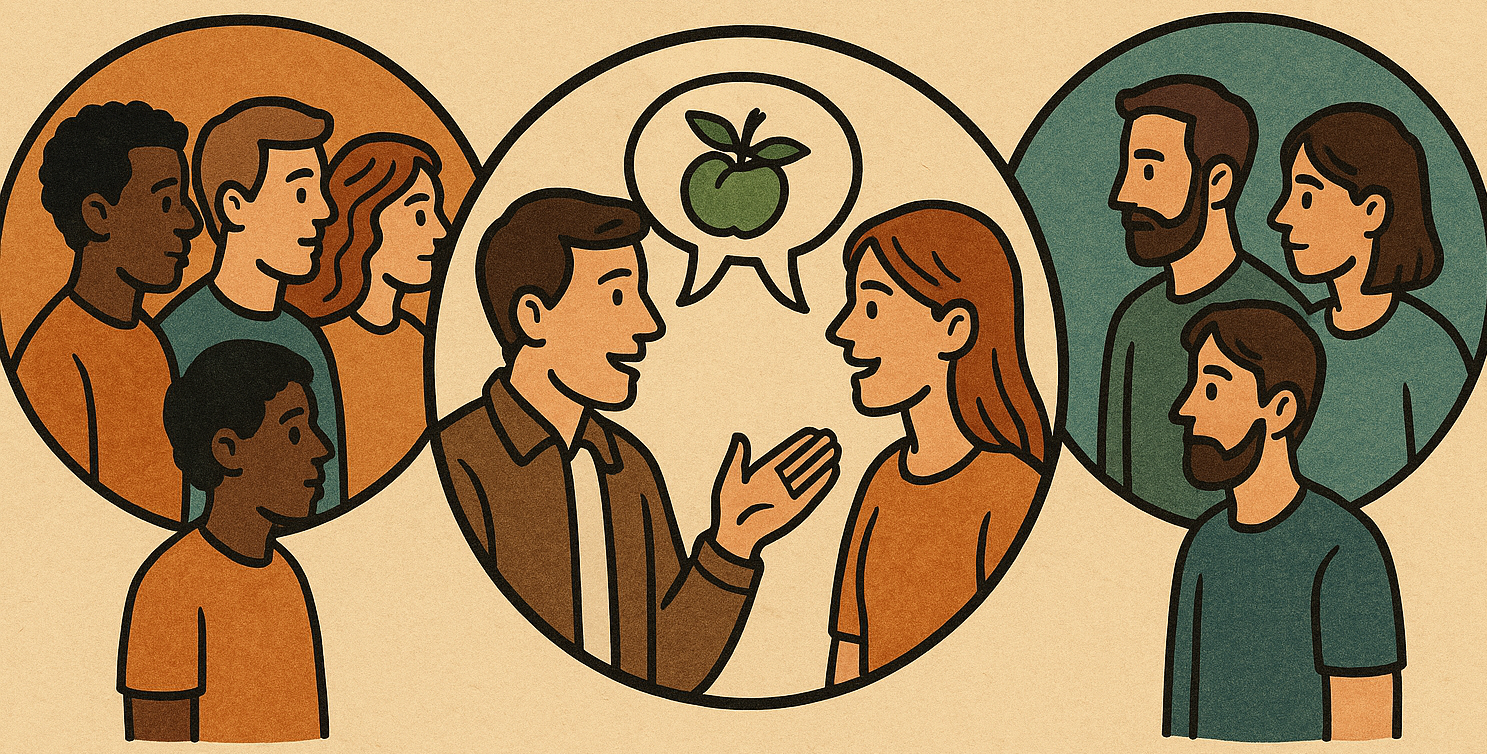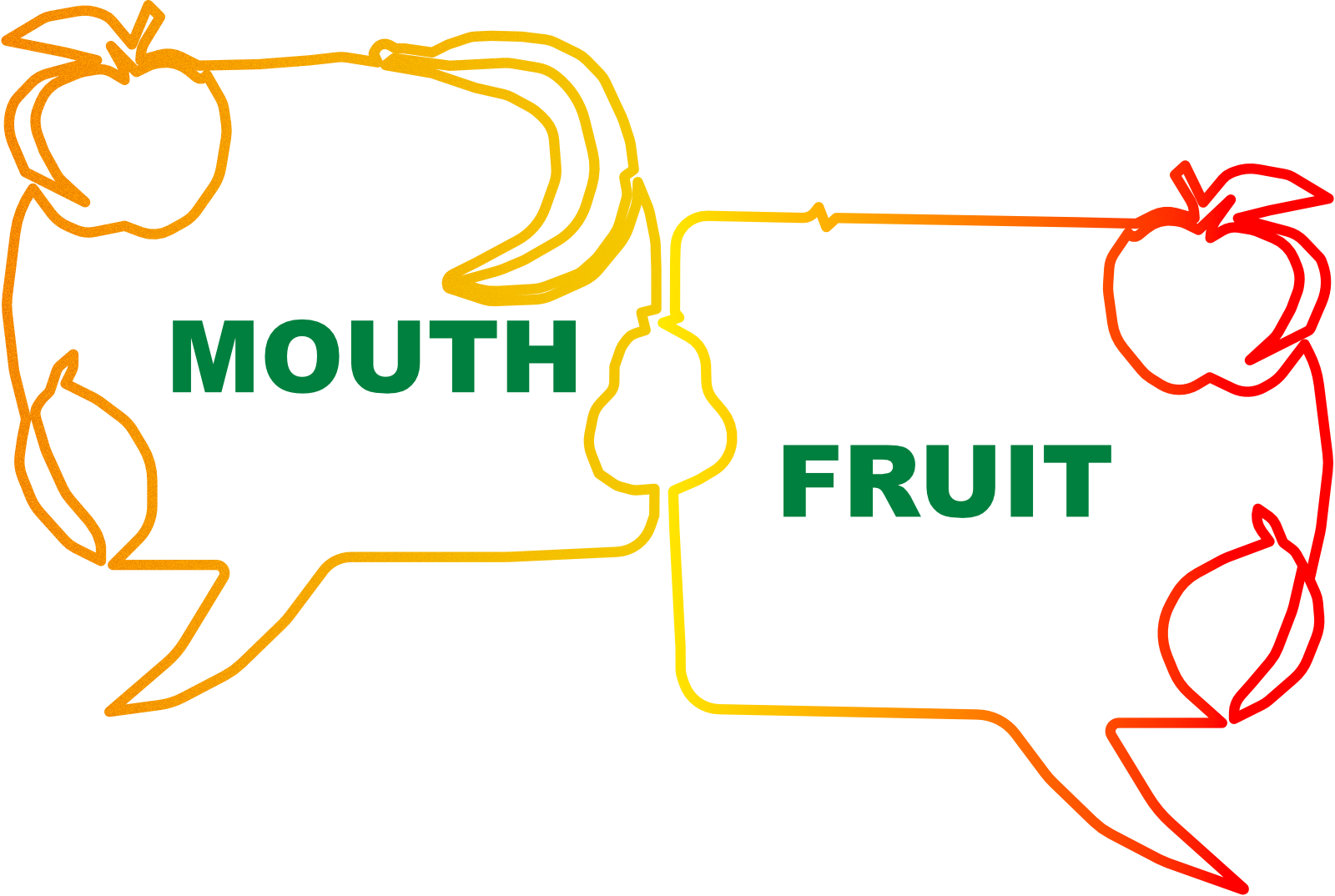Healthy Groupishness beats Toxic Tribalism
Yes, this applies to good productive discussion, dialogue that is fruitful.

Understanding the psychology that makes us choose sides—and what to do about it
Are you an Apple person or an Android person?
If you have a strong answer to that question, you've probably got reasons. Good reasons. Maybe you value the seamless ecosystem and intuitive design of Apple. Or perhaps you appreciate Android's customization options and open-source philosophy. You could probably spend twenty minutes explaining why your choice is objectively superior.
Now here's the uncomfortable question: How many of those reasons did you come up with after you already decided your preference?
Be honest. When did you actually sit down and methodically evaluate the technical specifications, user experience design, and long-term value proposition of each platform? Or did you just... pick one, start using it, and then gradually build up an arsenal of arguments for why it's better? And when was the last time you actually listened to someone explain the opposite choice without mentally preparing your rebuttal?
If you're like most people, it's the latter. And this isn't unique to phones.
❓ When you feel yourself getting defensive about a preference, ask: "Am I defending this because it's actually better, or because it's mine?"
❓ When you dismiss someone else's viewpoint, ask: "Would I take this idea more seriously if it came from someone on 'my team'?"
❓ When you feel that righteous anger at "those people," ask: "Am I being played?"
Marvel or DC? PlayStation or Xbox? Coke or Pepsi? Ford or Chevy? Star Wars or Star Trek? _____ or _____?

We pick a side, often for arbitrary reasons (our friends had it, we saw an ad we liked, it was on sale that day, we have a something in that ecosystem), and then we become fans. We don't just prefer our choice—we identify with it. We defend it. We notice every flaw in the competition and every virtue in our team. We feel a little spark of satisfaction when we see someone else using "our" brand, and a small sense of distance when they're using "theirs."
This is groupishness, and it's one of humanity's distinctive features.
The Superpower You Didn't Know You Had
Groupishness isn't a bug in human psychology—it's a feature. A powerful one.

Wow. A superpower. That's cool. But do I have to wear a cape?
Psychologist Jonathan Haidt describes humans as "90 percent chimp and 10 percent bee"—meaning we're mostly self-interested individuals, but we have the unique capacity to transcend our individual concerns and temporarily lose ourselves in something larger.
(You won't find groupishness in the dictionary yet—Haidt coined it because "tribalism" already sounds like an insult, and he needed a neutral word for the trait itself.)
Think about the last time you were at a concert, or a sports event, or a church gathering. That feeling when everyone's moving together, cheering together, singing the same praise song—that's the "hive switch" flipping on. Haidt argues that humans have a kind of switch that allows turning off individual competition in favor of group cooperation. Haidt sees this as the reason humans could cooperate in small bands to hunt mammoths, build communities, and eventually create civilization.
We're designed for teamwork. We need to belong. And alongside our own individualism, we trade, we love, and we join with others.
This is beautiful. This is what makes us persons.
But there's a dark side.
When Fandom Becomes Fanaticism
Here's where it gets tricky: our "little grey cells" aren't always great at distinguishing between groups that matter and groups that don't.
The same psychological mechanisms that help humans form tight-knit communities, support each other through hard times, and accomplish things no individual could do alone—those exact same mechanisms can be hijacked by trivial preferences.
Your brain processes "iPhone user" the same way it processes "member of my family" or "person from my town." Once something becomes part of your identity, you:
- Notice evidence that supports your team (confirmation bias)
- Dismiss or forget evidence against it (selective memory)
- Feel warmer toward people who share your preference (in-group bias)
- Feel cooler toward people who don't (out-group bias)
- Defend your choice even when presented with contradictory facts (motivated reasoning)
And here's the kicker—the surprising twist: These cognitive biases exist in all groups, particularly for issues important to the group (often moral issues) and particularly when ambiguity is high and therefore the importance of argument and persuasion is high.
None of this is conscious. You're not trying to be biased. You genuinely believe you're being rational. That's what makes it so powerful—and so dangerous.
From Phones to Control: The Slippery Slope
"But wait," you might be thinking, "what's the harm in one being passionate about phone choice or favorite superhero franchise?"
Honestly? Not much. iPhone vs. Android debates might be annoying at family dinners during Thanksgiving, Chuseok or Passover Seder, but they're mostly harmless. The problem is that our brains use the same machinery for all group identities—trivial and serious alike.
Tribalism
The effects of human groupishness on our moral and epistemological thinking are significant. Kevin deLaplante explains this well in his fun video The Dangers of Tribalism. When we take the fan mentality and apply it to things that actually matter—when to use force, values, how we organize ourselves, how we treat each other—we end up in dangerous territory. We get into control.
As the gap in attitudes, beliefs and values between groups widens, we begin to disagree on more things and disagree more strongly, and then begin thinking that this disagreement represents a deeper flaw in the moral character of members of the other group or represents a basic defect in their ability to see reality for what it really is.
Suddenly it's not "we prefer different approaches to solving problems." It's "those people are stupid, evil, or brainwashed."
Sectarianism
Tribalism is related to sectarianism. Today, sectarianism applies well beyond religious differences. Some scholars prefer the term sectarianism over tribalism. Sectarianism is more ideological and cognitive; the "other" is wrong, heretical or illegitimate. Tribalism uses favorite models and is more identity-based and emotional; the "other" is simply not us. When I look at usages, I find a lot of overlap and shifting of definitions; my head is spinning.
Are they that different? They have the same core ingredients:
- othering
- aversion
- moralization
- purity tests
- identity
- demonization
Where we find a collection of people, there is sectarianism.
Groupism
Yeah, another word for this kind of thing. However, this often refers to the methodological and analytical error in those who use the other terms. (And in many circles, this refers to the problem of cliques in the workplace, so be aware of the possible confusion.) Usage might be found among those in sociology and critical theory.
The groupism critique considers groups as fluid, constructed and contested, rather than seeing them as real, bounded discrete entities. Reified social categories are considered unhelpful. This groupism consideration points out that our "group conflict" language can actually create the groups it claims to describe.
We want to understand this group stuff, but we are cautioned.
Comparing all four
| Term | Scholarly Home | Focus | Valence |
|---|---|---|---|
| Sectarianism | Religious studies, history, area studies |
Ideological and doctrinal divisions |
Negative |
| Tribalism | Evolutionary psych, social psych |
Us-vs-them psychology |
Negative |
| Groupishness | Moral psychology, evolutionary psych |
Capacity for group cooperation |
Positive or neutral |
| Groupism | Sociology, critical theory |
Analytical error in studying groups |
Critical, methodological |
Today
We've gone from being fans to being fanatics. I'm uncomfortable with this. Maybe you are, too.
The Exhausted Majority
Here's the good news: most of us are tired of this.
Perhaps two-thirds of Americans are fed up with polarization and want to return to mutual good faith and collaborative spirit that characterize a healthy cooperation.
Many people, perhaps most people, when you talk to them one-on-one, are reasonable. A parent might want the availability of a good school, a protecter might want a safe neighborhood and positive societal norms, a worker might seek a good job. If we focused on our similarities, debate would be less divisive, and discourse should be focused on common goals rather than dismissing people with contrary positions as uneducated, misinformed or hateful.
But we've been sorted into teams. And once we're on teams, the fan mentality kicks in—like the switch that changes the lights and transforms the room.
The manipulators (control freaks, cronies, social media, and cable news) understand these mental quirks and invest in strategies to trigger those reactions in voters and viewers to maintain attention and get votes and ad revenue. They profit from our groupishness. They know that outrage sells, that team loyalty is powerful, and that we'll keep coming back to hear about how terrible the other side is.

We're being played—manipulated for someone else's benefit. And the stakes are much higher than choosing between iOS and Android.
A Different Kind of Conversation
So what do we do?
First, we recognize that groupishness isn't going away. Tribal identification may be hardwired, but tribal categories are flexible. Though he warns of the problems of tribalism and its harm to clear thinking, Kevin deLaplante says, "Tribalism is not the problem." We can't eliminate our need to belong to groups—nor would we want to. The solution isn't to stop being groupish. It's to be thoughtfully groupish.
1️⃣ That means asking ourselves harder questions:
- What groups do I identify with, and why? Did I choose them deliberately, or did I just inherit them or fall into them?
- Am I treating this like a fan treats their team? Am I defending positions just because "my side" holds them? Am I dismissing good ideas because they come from "the other side"?
- What would change my mind? If the answer is "nothing," that's a red flag—a warning that something is wrong. Fans are immune to evidence. Truth-seekers aren't.
- Who profits from me staying angry at "them"? Are we being manipulated by those who profit from division?
2️⃣ Second, we get better at distinguishing between healthy groups and toxic tribalism:
Healthy groups are built around:
- Concrete shared goals (building something, solving a problem, helping people)
- Face-to-face relationships
- Diverse viewpoints working toward common purpose
- Willingness to be wrong and learn
Toxic tribalism is characterized by:
- Abstract identity markers (political labels, brand loyalty)
- Digital echo chambers
- Purity tests and excommunication of doubters
- Certainty and moral superiority
3️⃣ Third, we remember this: If you want to make a community work, then you don't keep underscoring the places where you're different—you underscore how we are alike.
Mouth Fruit: A Different Way Forward
This blog, Mouth Fruit, is about exploring what I call "fruitful dialogue"—conversations that actually produce something valuable rather than just generating heat, that anger without progress . It's about civil discourse, but with less top-down government mandates and more bottom-up person-to-person connection.
Because here's what I've learned: The antidote to toxic tribalism isn't to eliminate groups or pretend we're all just isolated individuals. We are individuals and as individuals we connect to others. The most dangerous loss in modern times may be to community—it seems we tend to be disconnected from just about everything.
This applies to any person-to-person dialogue regardless of whether we have identified applicable groups.
The antidote to toxic tribalism is to redirect our groupishness toward authentic community:
- Neighbors solving neighborhood problems together
- Local organizations addressing real needs
- Conversations focused on "how do we accomplish X" instead of "which team do you support"
- Groups defined by what they're building, not who they're against
We're fans by nature. That's not changing. But we get to choose what we're fans OF.
We can be fans of our local community thriving. Fans of good ideas regardless of where they come from. Fans of treating people with basic dignity even when we disagree. Fans of making things better rather than just proving we're right.
So, what?
Understanding our environment of groupishness and tribalism impacts how we communicate.

Here's what this looks like: Instead of saying 'How can you even support that policy?', you might ask 'What problem are you trying to solve?' Instead of thinking 'They're in the wrong tribe,' think 'They're solving for a different priority.' The conversation shifts from defending positions to understanding concerns.
In conversations, this means: Before responding, ask yourself 'Am I dismissing this idea because of who said it, or because of what it says?
This is a step toward fruitful dialogue.
Your Turn
So here's my challenge: Over the next week, notice your fan mentality in action.
❓ When you feel yourself getting defensive about a preference, ask: "Am I defending this because it's actually better, or because it's mine?"
❓ When you dismiss someone else's viewpoint, ask: "Would I take this idea more seriously if it came from someone on 'my team'?"
❓ When you feel that righteous anger at "those people," ask: "Am I being played?"
We're all fans of something. The question is whether we're the kind of fans who make things better, or the kind who just make things worse.
Let's talk about it in the comments.
🤡 Do you identify with a weird or funny group?
🫂 How often do you see your fan mentality showing up?
👯 And how do we build community and culture without building walls?
👀 Have you been curious about groups?
👄Is this group thing weird and you just want to chat with folks?
🍽️ What family gathering do you have that is like Thanksgiving?
🥧 Pumpkin pie or apple pie?
